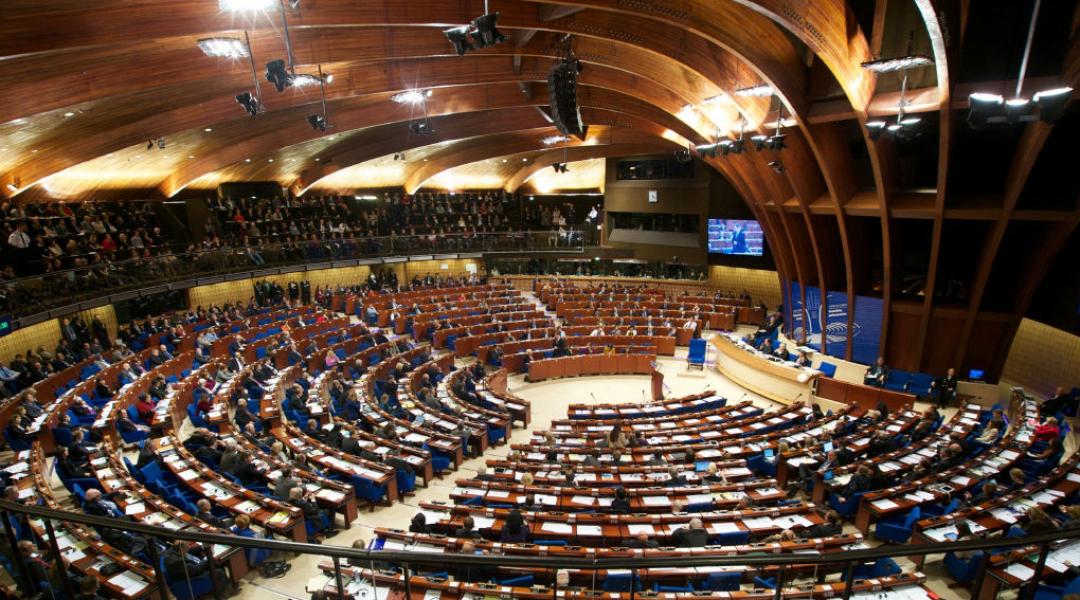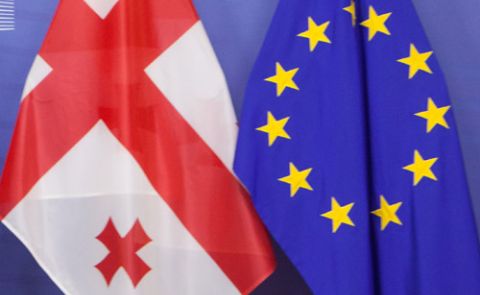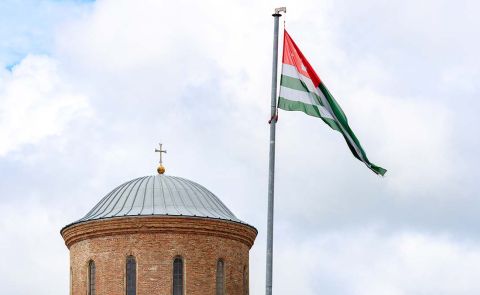
Aliyev criticizes the latest PACE Resolution on Azerbaijan

On 5 February, Azerbaijani President Ilham Aliyev received Turkish Foreign Minister Mevlut Cavusoglu ahead of the meeting of Foreign Ministers of the Turkic Council in Baku. Aliyev spoke with Cavusoglu on the latest resolution adopted by the Parliamentary Assembly of the Council of Europe (PACE) in regard to political prisoners in Azerbaijan.
“Unfortunately, for 20 years this organisation (Council of Europe) has [chosen] Azerbaijan as a target, and Turkey an even greater number of times,“ he stated.
“I believe that during this period the Council of Europe has been undergoing a process of degradation, this organisation is losing its significance at the international level, it cannot influence the processes taking place in the world. The influence of the organisation is low, and the main reason for this is pretence, double standards and injustice,' the head of state emphasised,” he added.
Aliyev then spoke about how the Council of Europe tries to depict Azerbaijan as a backward country without noting the positive developments within Azerbaijan. “They (Council of Europe) try to paint over Azerbaijan only with black paint, as if obstacles to democratic processes are being put in [place in] Azerbaijan. All this is a lie, there are no political prisoners in Azerbaijan, we know this well. And those countries where there are political prisoners remain out of focus. I can cite Armenia as an example. The former president of Armenia has been [under aresst] for more than a year,” he said.
Aliyev also stated that the Western European states impose double standards on certain countries. “Let the Council of Europe pay attention to the brutality and violence of the police in the advanced countries of Europe, to the killing of people, let it criticise these countries and the law enforcement agencies of these countries. It can be said that in the leading European capitals they regularly beat and insult people, kill them, knock out their eyes, send dogs against them and crush them under horse hoofs. As if it was a democracy. And when we talk about this, and in many cases I openly talk about this to people who come from Europe and want to criticise us, they do not respond, they are silent. But as soon as they go beyond my office, they continue their activities again, they want to denigrate us,” he said.
“The latest resolution adopted in connection with Azerbaijan is of no significance, and its price is not higher than a piece of paper. We do not accept any of the fabricated accusations voiced there and will not fulfil their so-called demands,” he concluded.
On 30 January, PACE adopted the resolution on the “Report on communications in connection with political prisoners in Azerbaijan” and its recommendations. The resolution was drawn up based on the report of the speaker on political prisoners in Azerbaijan, the Icelandic deputy Thorhildur Sunna Evarsdottir, who visited the country on 5 September (Caucasus Watch reported). The resolution was adopted by the majority with 82 votes in favour and 28 against. None of the three amendments proposed by the Azerbaijani delegation was adopted.
The resolution stated that in recent years, the European Court of Human Rights has issued a very large number of judgments finding violations of the European Convention on Human Rights arising from arbitrary arrest and detention of opposition politicians, civil society activists, human rights defenders and critical journalists, often combined with violations of their freedoms of expression or assembly. Many of the judgments of the Court finding arbitrary arrest and detention in Azerbaijan concern administrative detention.
It further noted the repeated use of presidential pardons to release convicted prisoners, including many who were reported to be political prisoners. Whilst the release of wrongly imprisoned people is always welcome, presidential pardons, which are often conditional on an apology, do not fully erase the effects of injustice and their extensive use casts doubt on the proper functioning of the criminal justice system.
It welcomed the steps taken by the Azerbaijani authorities in recent years to reform the penitentiary, criminal justice and judicial systems, including the Executive Order of 2017 and the Presidential Decree of 2019. The decrease in the number of people who are arrested or in custody and the judges’ increasing willingness to decline prosecution requests for pre-trial detention orders were also noted.
The resolution recommended that the government of Azerbaijan:
-
subject the cases of persons on the most extensive, detailed and regularly updated lists of alleged political prisoners to review by an independent and impartial body and to release those found to be political prisoners
-
take a holistic approach, addressing problems relating to the judiciary, the Prosecutor General’s office, the police, the detention system and administrative detention together in a coherent and co-ordinated way, so as to ensure the non-repetition of politically motivated arbitrary detention,
-
promptly take every possible step towards full implementation of the judgments of the European Court of Human Rights, so as to ensure, amongst other things, that Mr Ilgar Mammadov and Mr Anar Mammadli may stand as candidates in elections and that Mr Rasul Jafarov can resume his professional activities as a lawyer;
-
co-operate fully with the Committee of Ministers in its supervision of the implementation of judgments of the European Court of Human Rights, especially under its enhanced procedure, including by promptly submitting detailed and comprehensive action plans setting out the measures to be taken and by providing full and up-to-date information in good time before relevant meetings of the Committee of Ministers.
The members of the Azerbaijani delegation to PACE strongly disagreed with the provisions of the report. Sahib Gafarova saw in the report the religious radicals convicted of criminal offenses as political prisoners. Other deputies from Azerbaijan, rejecting criticism, pointed to Azerbaijan’s commitment to co-operation with the CE and noted objective difficulties in democratic construction and the “difficult legacy” of the past. The Azerbaijani delegation was supported by a number of deputies from Russia, Turkey and several other countries.
The head of the Azerbaijani PACE delegation, Samed Seyidov, accused the speaker of bias and free interpretation of the ECHR decisions, as well as of “interference” in the upcoming parliamentary elections in February, deliberately calling into question their “democracy”. “The statement that there are political prisoners in Azerbaijan is a heavy accusation and we will never admit it,” he said.
Evarsdottir, in turn, responding to the accusations against her, said that compared to December last year, when the issue was discussed in the PACE Committee, he changed his position by 180 degrees. “Now I understand why there are political prisoners in Azerbaijan. You are intolerant of criticism,” she said.
She believed that the unsolved problem of political prisoners will put the country's membership in the Council of Europe at risk. “None of us want this. Azerbaijan has its place in the Council of Europe. But this country must respect its obligations,” she added.
During the PACE Winter session, the resolution on “Threats to media freedom and the safety of journalists in Europe”, was adopted, where also critical voices towards Azerbaijan were outed (Caucasus Watch reported). According to the latest statistics of the European Court on Human Rights, Azerbaijan is one of the countries which has one of the most cases pending in front of that body (Caucasus Watch reported). On 10 December, the PACE Committee on Legal Affairs and Human Rights reported that Azerbaijan had a ‘systemic’ problem of political prisoners, and urged reforms and review of the reported cases (Caucasus Watch reported).
See Also


BP Strengthens Presence in Azerbaijan’s Offshore Energy Sector

Netanyahu’s Letter to Aliyev: Mutual Trust, Solidarity Following Hamas Attacks, Facilitating Dialogue Between Israel and Türkiye

Azerbaijan Expands JF-17 Thunder Fighter Jet Order from 16 to 40 Units

EU Commissioner and NATO PA Warn Georgia Over Democratic Decline Amid Accession Challenges

